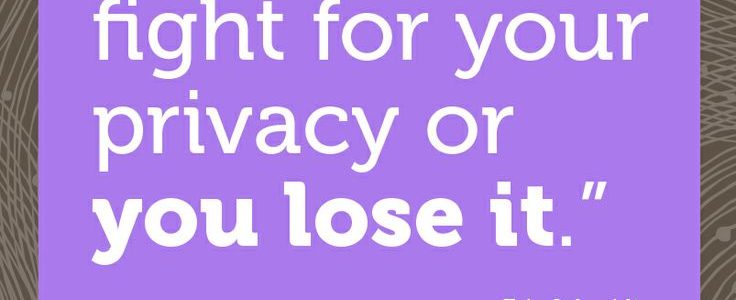Let’s start with email. That was our first real “social media.” Unless your email is business related and covered by some sort of legal privacy rules, it is not really private. If you email Jane Doe about all your marital problems, family drama, etc. there is no law that prevents Jane from sharing your email with ten other friends. No real right to privacy.
Current social media like Facebook, Instagram, Snapchat, etc are not private. The information shared on a your “private” page is only able to viewed by your “friends” if you have chosen privacy settings. However, many of these “friends” take screenshots of things you post and share with others. Many people have their pages set where anyone can view their posts and friends. Social media is not private.
Text messages (or Messenger) are becoming the most common form of communication. You pour your heart out to friends and relatives expecting privacy because these are people you love and trust. Maybe you think you are just having a private discussion with a peer, co-worker, etc.
Unfortunately, these people may not have the same trust and loyalty to you. They screenshot your entire “private” conversation and share it publicly or with others. Your communication is not private or protected by law.
Now if you don’t want to put things in writing, you can could resort to a good old fashioned phone conversation. I know these are rare today, but can be enjoyable. However, a lot of people have installed phone recorders to save for evidence for various reasons.
These recordings are perfectly legal in Missouri, so long as one participant knows the call is being recorded. The person recording knows, so that covers the legal application. Any phone call can be recorded by the other party without your knowledge or consent. Again, no privacy or protection from release.
We also back up all our information from phones and computers to the “cloud” so that we can retrieve the information if needed. That information is saved on some unknown server in an unknown location only accessible by you and your password. Maybe.
That information can be hacked and is certainly reviewed in the event law enforcement is involved. They will get a warrant and have a copy of every single thing you have backed up to that cloud. It is arranged neatly in a report that is provided to the prosecution and defense. It is admissible and no longer private.
We can ask our phones, tablets and computers questions that are answered. That information is saved. Then we start getting targeted ads for the items or similar items to what we asked Alexa or Siri to look up for us. Clearly your discussion with your “automated assistant” is not private. Or how does Facebook suddenly know to send you targeted ads for the tires you looked up or asked about yesterday?
Without taking some very serious measures and avoiding electronic communication or telephone communication, you gave up your right to privacy when you signed up for the Internet. Despite all the “privacy policies” very little is private today. We traded it for instant access to information and communication.
Privacy is in critical condition, and technology is the prime suspect. Be careful with your personal information and your heart. Unfortunately, it won’t be protected from public disclosure and ridicule, unless you are vigilant about protecting what you share. We all make mistakes in this area, but maybe we can each give our privacy a little CPR and bring her back to stable condition.

